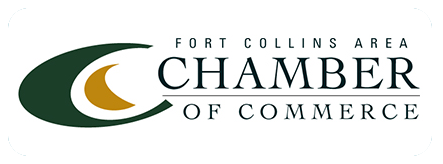AI in Nutrition: Helpful But Not a Complete Solution
In the rapidly evolving landscape of health and wellness, Artificial Intelligence (AI) is emerging as a groundbreaking force, offering innovative solutions for managing nutrition and diet. With the advent of AI-powered applications, the dream of having a personal nutrition assistant in your pocket is becoming increasingly tangible. These applications, ranging from calorie trackers that analyze food photos to AI chatbots offering dietary advice, promise a new level of convenience and precision in dietary management. However, amidst this technological revolution, health experts caution against overlooking the invaluable human touch in the complex field of nutrition.
The Role of AI in Nutritional Health
Notable examples of AI’s foray into nutrition include HealthifyMe, which features a “Snap” option that claims to identify calories and nutrients from meal photos, and SnapCalorie A.I. Nutritionist, which positions itself as a “smart AI nutritionist” providing coaching and feedback. Even tech giants like Samsung are integrating AI into household appliances, such as the Bespoke 4-Door Flex Refrigerator equipped with an AI Family Hub that suggests recipes based on the food it detects.
Despite these advancements, dietitian-nutritionist Alexandra Kaplan, from Core Nutrition, underscores the potential of AI to enhance her practice, given its ability to accurately quantify food intake. Kaplan appreciates the prospect of AI offering precise insights into portion sizes and nutritional content, which could significantly improve dietary monitoring and patient counseling. Nevertheless, she also recognizes the challenges in interpreting food images through AI, noting the difficulty in gauging actual portion sizes from photos.
The practice of logging food intake, whether via sophisticated apps or simpler methods like note-taking or photography, has consistently shown benefits in Kaplan’s experience. The act of recording meals encourages mindfulness and accountability, fostering a more disciplined approach to eating. Should AI technologies offer a more accurate and expedient means of tracking dietary intake, the likelihood of individuals adhering to their nutritional goals may increase, amplifying the benefits of diet logging.
The Human Touch in Nutrition
However, Kaplan cautions that while AI applications serve as valuable tools in achieving health objectives, they cannot fully capture the subtleties and personalization required in nutrition planning, especially for individuals with specific health conditions. From managing diabetes or metabolic syndrome to navigating dietary restrictions related to celiac disease or irritable bowel syndrome, many individuals require tailored advice that extends beyond calorie counting to encompass broader nutritional considerations.
Amid discussions on AI’s potential to supplant human roles in various sectors, Kaplan remains confident in the irreplaceable value of human expertise in nutrition counseling. She highlights the nuanced understanding humans bring to interpreting food labels, identifying diet-damaging habits, and recommending healthier alternatives. Moreover, the ability to motivate clients and tailor advice to their unique readiness for change is a distinctly human skill that AI cannot replicate.
Kaplan emphasizes the importance of empathy, personalized motivation, and behavioral strategies in her practice—elements that AI cannot mimic. Addressing emotional eating and devising strategies for making healthier choices are critical aspects of nutrition counseling that rely on human interaction and understanding. As AI technology continues to make strides in the field of nutrition, it offers exciting possibilities for augmenting traditional dietary management and health coaching. Yet, the consensus among health professionals is unequivocal: while AI can serve as a powerful tool in the quest for better nutrition, it should complement, not replace, the nuanced care, personal connection, and expert guidance that dietitian-nutritionists provide. In navigating the path to optimal health and nutrition, the blend of AI’s efficiency with human expertise offers the most promising route, ensuring that technology enhances rather than eclipses the invaluable role of human professionals in the dietary realm.




